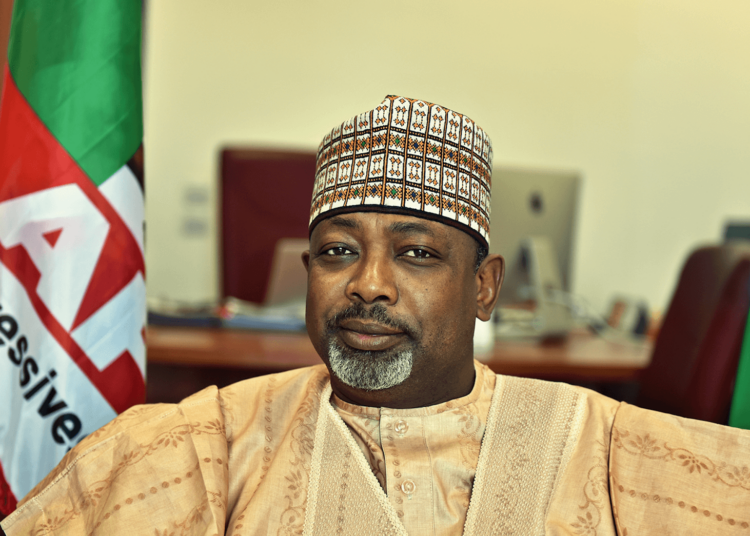The federal government has announced its plans to explore the potential of water resources for sustainable agriculture in the country.
The announcement was made by the Minister of Agriculture and Food Security, Senator Abubakar Kyari, during the celebration of the 2023 World Food Day in Abuja on Monday.
The theme for this year’s celebration is “Water is life, water is food. Leave no one behind”, which underscores the value of harnessing water resources for sustainable agriculture.
According to the minister, water is essential for food production and food security, especially in the face of climate change.
Kyari stated that the ministry has commenced collaboration with the Federal Ministry of Water Resources to harness all water resources available, including River Basins, Dams around irrigable lands, and other wetlands for multiple cropping cycles.
He said that the federal government will begin the 2023-2024 dry-season farming with priority crops including wheat, rice, maize and cassava with aggressive sustainable plan for up-scaling and replicating same for other crops, livestock and fisheries across the federation.
“The theme of this year’s World Food Day commemoration is apt and timely for Nigeria.. this renewed synergy and cooperation between our two ministries has started yielding results as assessment and operational appraisal visits to the River Basin Development Authorities have begun in earnest and would be deployed for the 2023/2024 dry-season of the federal government in conjunction with states and local governments,” the minister said.
Earlier at the event, the Food and Agriculture Organisation of the United Nations (FAO ) urged the federal government of Nigeria to prioritise and implement integrated water resources policies for sustainable agriculture.
Head, North-East sub-office of FAO, Alhassan Cisse, who represented the director-general, Dr QU Dongyu, in Abuja, said countries needed to develop innovative solutions with partners, including the private sector to significantly increase investments in integrated water resources management and infrastructure.
He said countries needed to produce more food with less water, while restoring land and water systems and ensuring equitable access to water, and increased resilience to extreme weather events.
The UN agency also urged governments to design science-and evidence-based policies that capitalise on data and innovation, and coordinate across sectors to plan and manage water better.
“We need both national and regional designs. Investment in innovative, efficient water management practices is vital, including in modern irrigation and storage technologies and science-based solutions to address water scarcity and harnessing flooding; so that we are building a water-saving and resilient society, including through managing more effectively the water-food-energy nexus.
“All actors must be on board. We can and must do more, together, with all the various actors making their distinct yet interrelated contributions,” he added.
We’ve got the edge. Get real-time reports, breaking scoops, and exclusive angles delivered straight to your phone. Don’t settle for stale news. Join LEADERSHIP NEWS on WhatsApp for 24/7 updates →
Join Our WhatsApp Channel










